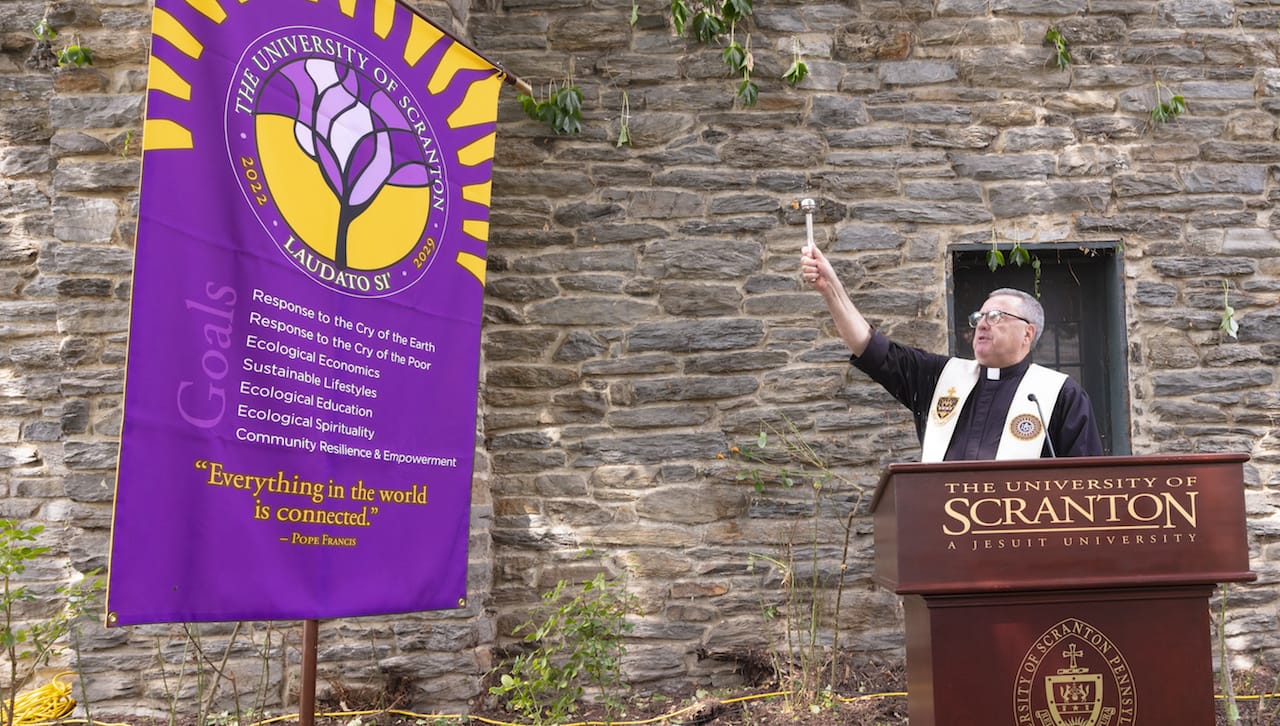Scranton Makes Princeton Review Green College List

The Princeton Review recognized The University of Scranton among just 522 colleges in the world included in the 2024 edition of “The Princeton Review Guide to Green Colleges.” Most of the schools selected for the guide, which was published online in October, are in the U.S.
“Schools that were selected for the Guide all have exceptional programs, policies and practices related to sustainability and the environment,” according to the Princeton Review. This is the fifth year that Scranton has made this list.
The Princeton Review analyzed more than 25 data points to determine the final selection of colleges for the guide based on information from surveys of nearly 700 schools. The criteria broadly covered the schools’ academic offerings and initiatives, campus policies and practices to assess the school’s sustainability practices and commitment.
Scranton’s long-established sustainability efforts include academics, facilities and community education and outreach. Scranton has infused issues of sustainability in courses across the curriculum, ranging from theology, to business, to the natural sciences, to education, as well as other disciplines. Scranton uses numerous “green” procedures in building maintenance practices, as well as in building design and construction. Scranton currently has three Leadership in Energy and Environmental Design (LEED) certified buildings: Leahy Hall, the Loyola Science Center and the DeNaples Center, which became the city’s first LEED certified structure in 2008. Further inspired by Pope Francis’ 2015 encyclical titled “On Care for Our Common Home,” the University has begun a seven-year initiative to be recognized by the Vatican as a Laudato Si’ University.
To be designated as a Laudato Si University, colleges must evaluate comprehensively current environmental and sustainability programs, then improve and develop further initiatives to address seven goals outlined by the Pope. The goals to be addressed are: to respond to the cries of the Earth; to respond to the call of the poor; to apply ecological economics; to adopt sustainable lifestyles; to implement ecological education programs; to develop ecological spirituality efforts; and to develop of programs to address community resilience and empowerment.
In addition to its “Guide to Green Colleges,” The Princeton Review has listed Scranton in its “Best Colleges” guidebooks for 22 consecutive years, also ranking Scranton in its 2024 edition among the nation’s “Best Science Lab Facilities” (No. 18) for the seventh year.






